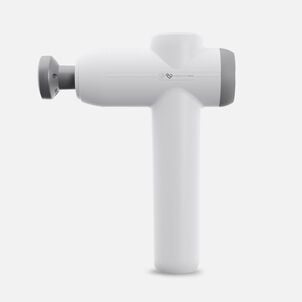We talk all the time about the upsides to saving money in your HSA, and these accounts really are a win-win all around. But if you're being hit with HSA fees on a regular basis, it might be eating up some of your savings. Since the fees tend to be fairly small, you might not notice that you're being nickeled and dimed, but fees can quickly eclipse the interest amounts that you're earning on your HSA. In some cases, you may not be able to avoid HSA fees, but the more you know, the better prepared you'll be.
HSA fees vary from one administrator to another (the administrator is the financial institution that you or your employer selected to hold or handle your HSA funds; it can be a bank, credit union, brokerage, TPA or insurance company).

But most people with HSAs are not picking their own HSA administrators. According to data collected by America's Health Insurance Plans (AHIP), 93% of people with HSAs in 2017 were enrolled in a plan sponsored by an employer, and just 7% had coverage purchased in the individual health insurance market.
If you buy your own HSA-qualified high-deductible health plan, you have to open your own HSA. That means you can select from among any of the available HSA administrators, and fees should absolutely be one of the factors you consider when you're comparing your options (HSA Search is a useful tool that shows monthly fees for hundreds of HSA administrators). But if you're among the majority of HSA owners who are enrolled in an HSA via an employer, your employer has picked the HSA administrator for you.
In that case, your employer might be covering some or all of the fees. But although you get to keep your HSA if you leave your job, you may find that you end up being charged fees that your employer was previously covering on your behalf.
If that happens, it's worth your time to shop around and see if you can get a better deal with an HSA administrator that you select yourself, and then transfer your HSA funds to the new account.
How to minimize your HSA fees
If you select your own HSA administrator, you can pick one that charges low or no fees. If your HSA offers the option to invest your funds, you'll be subject to at least some investment-related fees (things like brokerage fees, transaction fees, expense ratios for the funds you select, etc.), but there are HSA investment options that have low or no additional fees, and investment-related fees vary widely. Shop around!
If your employer has selected an HSA administrator on your behalf, that's the account you have to use if you want to receive the employer's contributions to your HSA and avoid payroll taxes as well as income taxes on your contributions (there's no way to avoid payroll taxes on HSA contributions if they aren't made via payroll deductions).
You always have the option to establish more than one HSA, and once you have money in one HSA, you can transfer it to the second HSA. This can let you gain access to an HSA with a better/lower fee schedule, but keep in mind that you might have to pay a fee to your original HSA administrator in order to transfer money out of the account. These fees are often in the range of $20 - $50, so although the IRS allows you to make an unlimited amount of HSA-to-HSA transfers, this probably isn't something you'd want to do on a routine basis.
Monthly account fees for HSAs are generally less than $5, and many HSA administrators have no monthly fee at all. And it's common for monthly account fees to be reduced or waived if you maintain a minimum account balance, which is usually in the range of $1,000 to $5,000. When you're just starting out, that seems like a lot of money.
But paying a few dollars a month in account fees will add up over time, so it's worth trying to reach the minimum balance necessary to have the fee waived, if your HSA administrator offers this option.
Although people tend to focus on the monthly account fee, there are a wide range of other HSA fees to keep an eye on. Fees can be levied for things like paper statements, ordering checks, ordering a replacement debit card if yours is lost or stolen, withdrawing excess contributions, and having insufficient funds in your account to cover a check you wrote.
These fees can really add up, but they can also often be avoided: Sign up for online statements. Use your debit card instead of ordering checks, or transfer money online to your checking account and use it to pay your provider. Keep track of your HSA balance and don't overdraw your account. Again, the more you know, the better you can manage your funds and make the most of your HSA, without losing chunks of your hard-earned savings to fees.


.png)
















